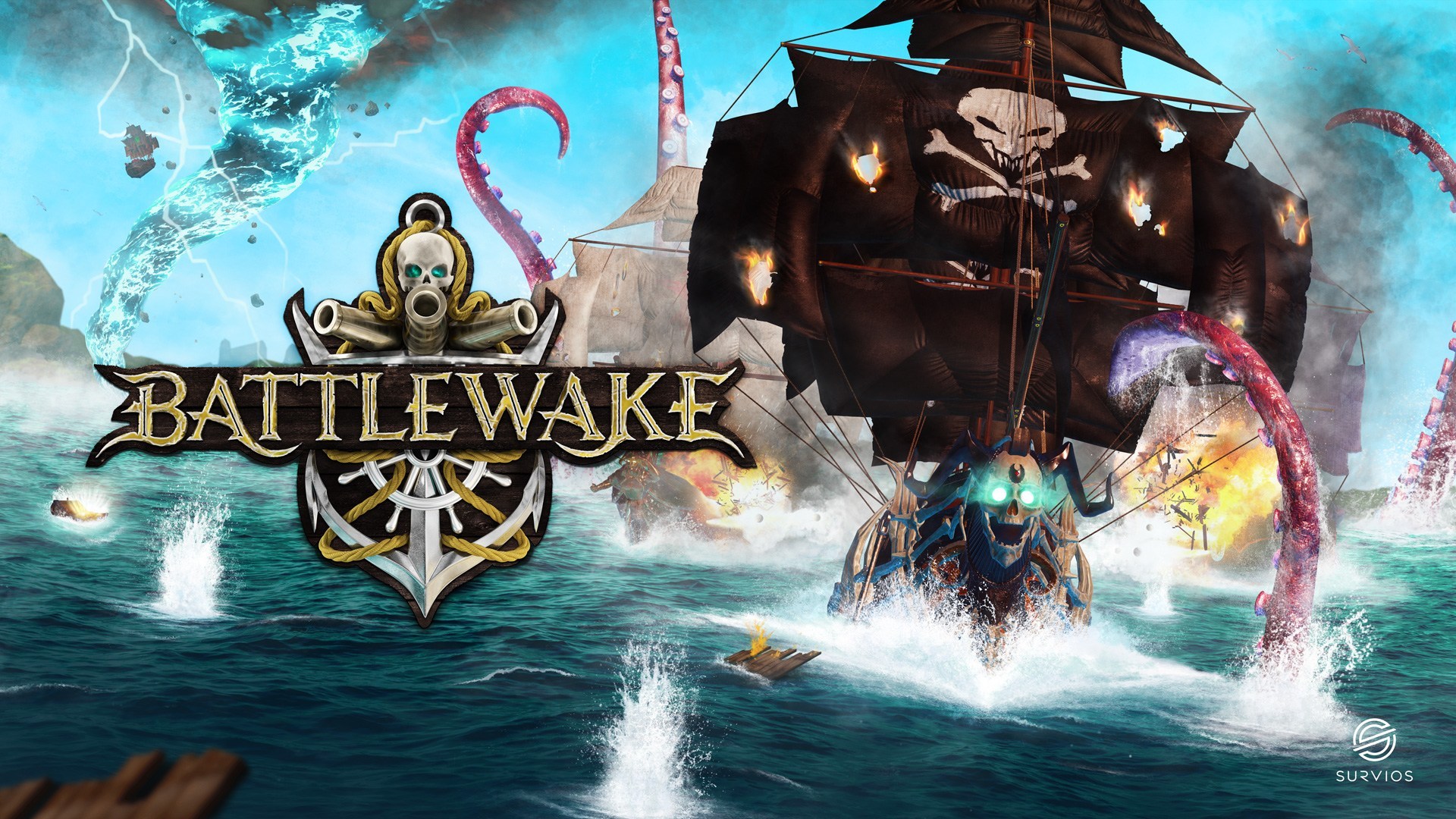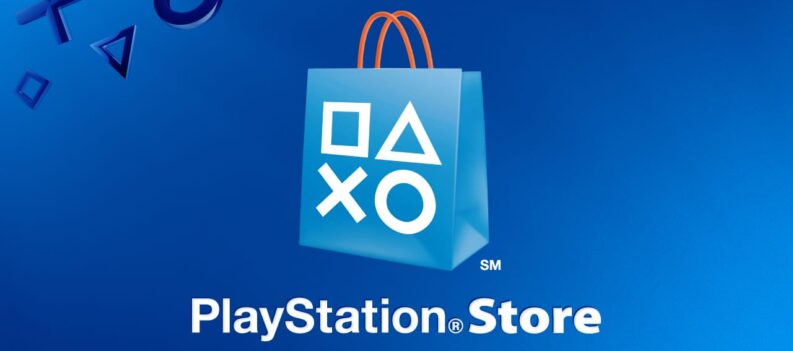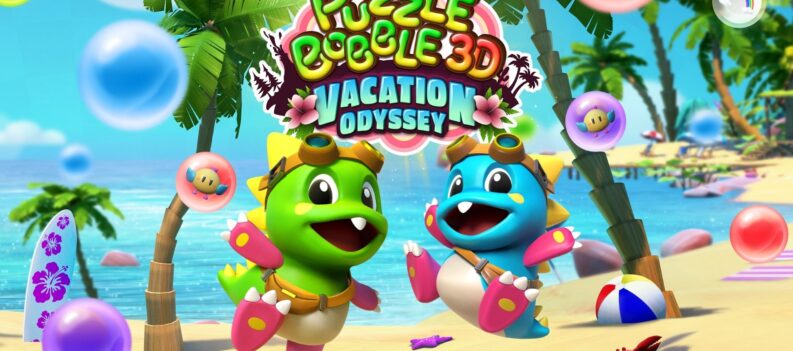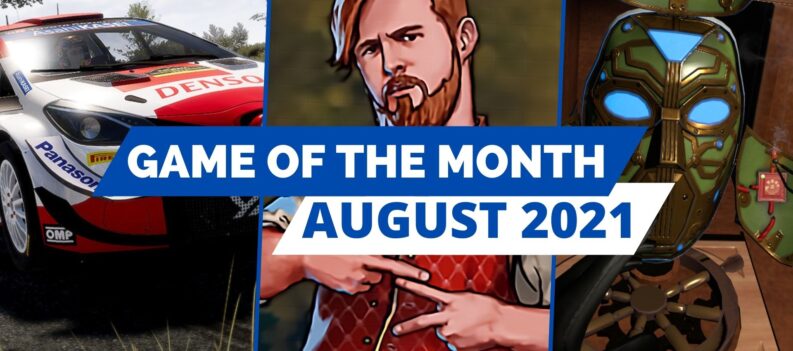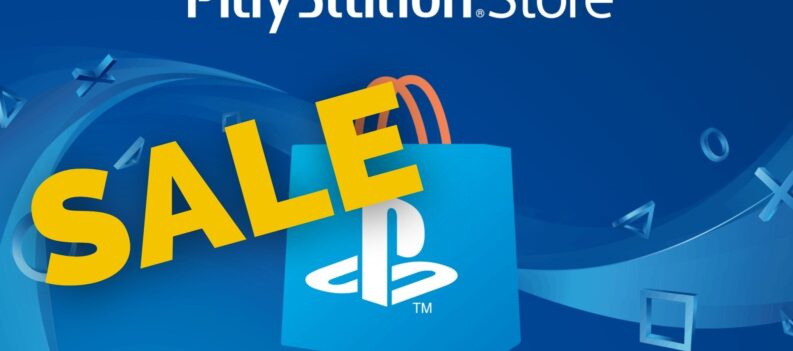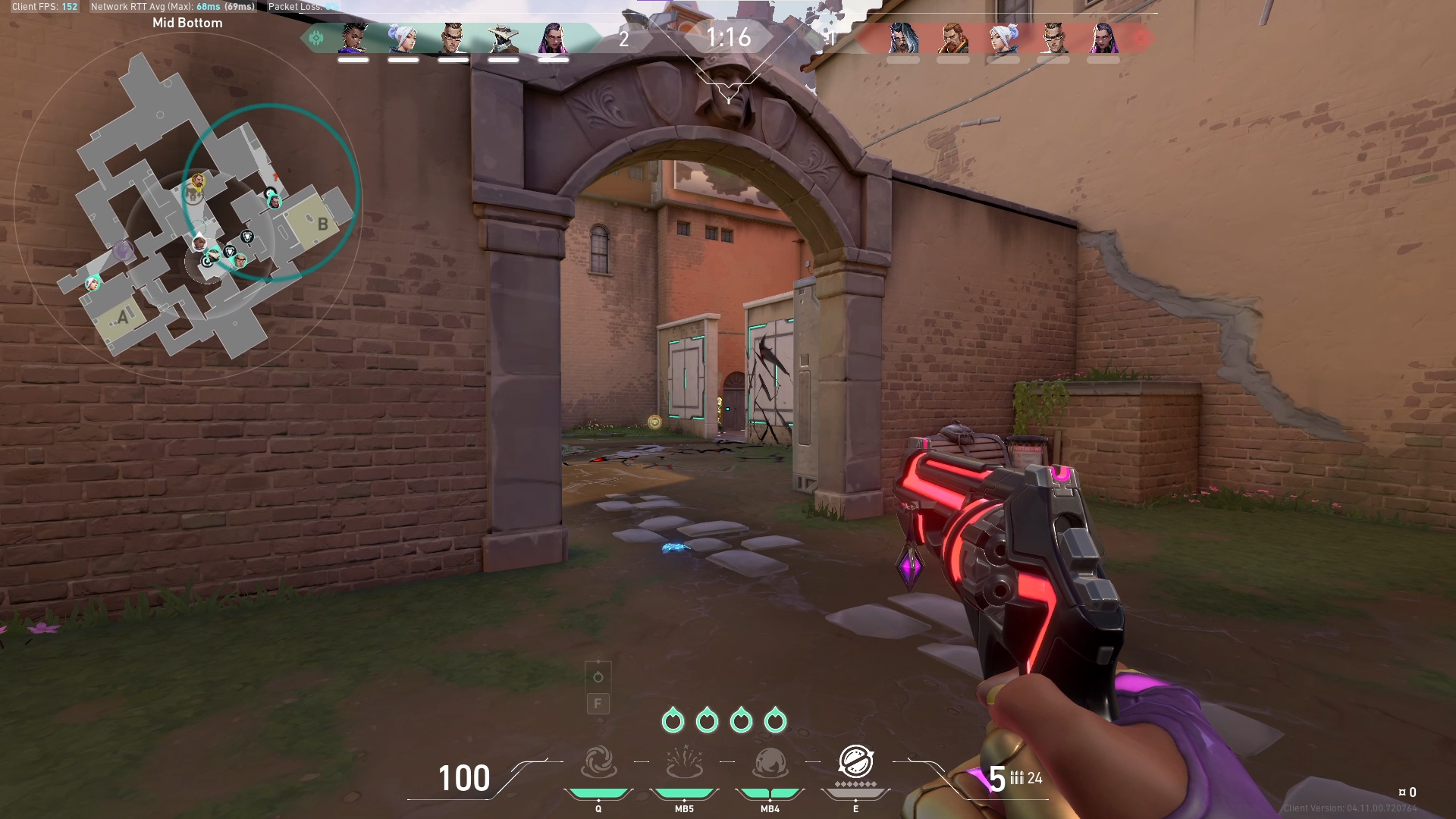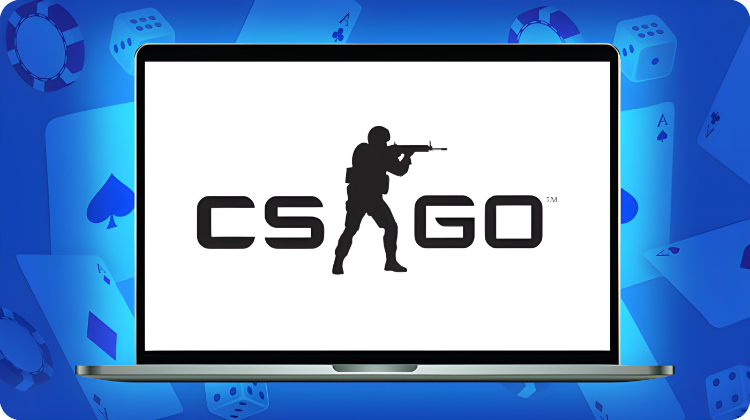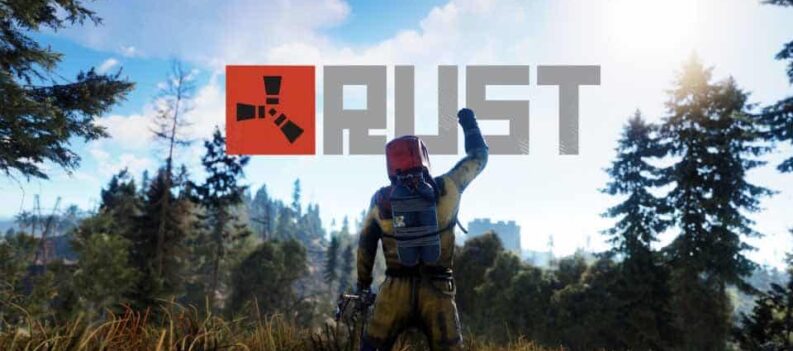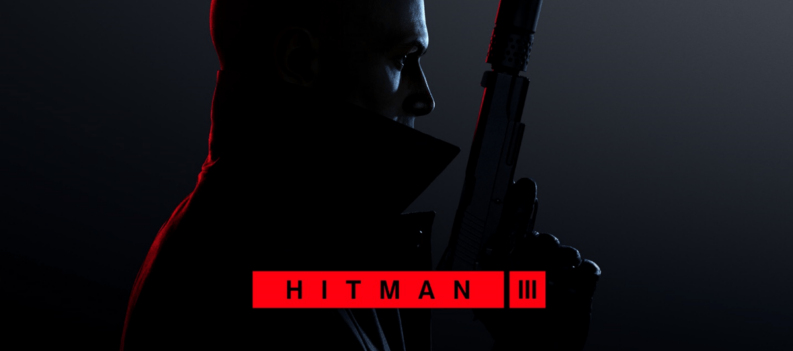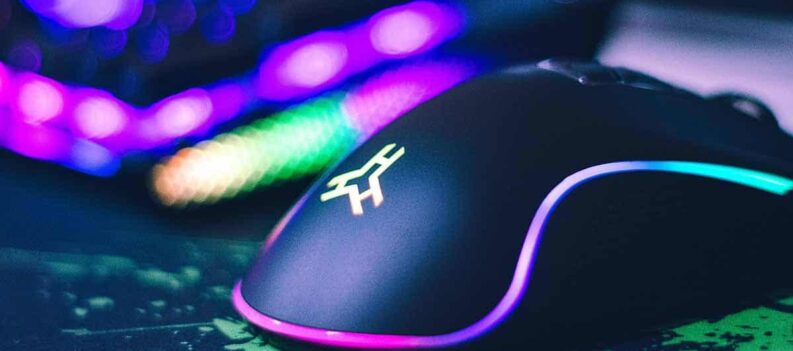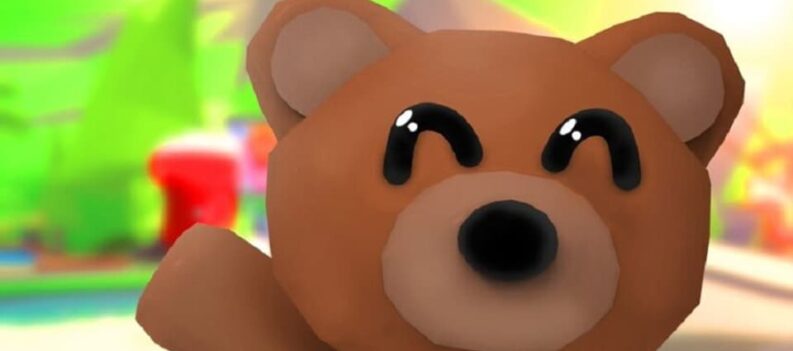Note: This interview was conducted by an outside source and a damn fine writer called Dan Moore. Dan took the time to sit and speak with Jeremy Nathan Tisser a while ago, and he offered us the exclusive interview which we have now published in its original form with minimal changes.
The pirates are finally here! Survios’ long awaited VR game, Battlewake is now available PlayStation VR, SteamVR, Oculus Home and Viveport. The game’s official description reads: Battlewake transforms you into four fearsome, super-powered Pirate Lords locked in a constant struggle for dominion over the lush landscapes of New Urth. Each is a figure of myth and might, fiercely devoted to their plundering way of life and the riches it brings in both spirit and treasure. Adding to the rip-roaring adventure is the original score by Jeremy Nathan Tisser. Jeremy’s history with Survios (he also scored their hit 2016 game, Raw Data) combined with his heavy metal background and knowledge of proper orchestrations makes this a very unique game score that players might want to listen to more than once. Below is an exclusive interview with Jeremy going more in depth about his work on Battlewake.
How did you first get connected with Battlewake? What was the initial appeal of the project for you?
Well if we want to go ALL the way back to the beginning…. I originally wrote the score to Project Holodeck’s first game, “Wild Skies”. This was a game that took place on basically flying pirate ships, and later became the initial spark for Battlewake. Project Holodeck would later trademark the name Survios. Fast forward a bit, I wrote the score to Survios’ first original IP, “Raw Data”. They loved the intensity and excitement I brought to that score, combined with my knowledge of world music, heavy percussion, and in the case of Battlewake, my love for orchestral music and metal. As for the appeal of the game, it is just so much freaking fun! When they first pitched it to me, they had a very basic demo where you controlled a pirate ship through the water and had a major battle against other pirate ships. I couldn’t believe how much fun it was to launch cannons of a ship in VR. It was exciting, addicting, new, and as I mentioned already, super fun! My brain was already churning out ideas at that point.
You also scored Survios’ hit game Raw Data. How would you say your approach was different to Battlewake?
The biggest difference was the way the music interacts with the world. Raw Data was more linear based, where the music was “set in stone”, and would be triggered by events in the game. With Battlewake, we needed the music to adapt to the player’s decisions. The score needed to be much more layered, and then split out into stems that could build up or be taken away based on the games’ intensity, the difficulty of the opponents, and whether or not the player chooses to go straight into battle or turn around for safety. The score to Battlewake, in my opinion, is much more grand than Raw Data. It touches on more styles of music, even though it’s still a cohesive sound with a singular recurring main theme. Battlewake takes us around the world, where as Raw Data was a straightforward science fiction/action movie, if you will.
Are there any elements of VR that inform your scoring method, that would differ if you were scoring traditional 2D media?
The biggest difference for me is how immersive VR truly is. With traditional 2D media, you rely on the soundscape to immerse you. For example, the Dolby Atmos sound system, which is an incredible experience when used correctly (like the film “Gravity”), but VR thrusts the player into a different world entirely. In the 2D media world, it’s the storyline and general visuals that inform me. With film, it’s the dialogue. But when I put on the Head Mounted Display (HMD) for a new game the first time, that feeling I get inside at the pit of my stomach is what really inspires me to write something new. It really is the experience itself that informs my scoring process and musical decisions.
From your first VR game you scored to Battlewake. What are some of the major changes you have seen in VR?
Really it’s the technology itself that’s changed so much. My very first VR game was a USC Master Thesis project called “Shayd”, by Juli Griffo, back in 2011 (yes…before the famed Oculus Kickstarter launch). Shayd took place on an alien world, and you could walk around “freely” in a bit 10 ft by 10 ft space. The HMD was basically ski goggles mounted to a bicycle helmet, with cables that connected to a laptop that was held in a backpack, and then a giant wad of cables that went off to the “backstage” area, where it was connected to a big ol’ PC. Then, you had two people helping you walk around. One to move you around the area super slowly, and the other to move the cables out of your way. They also hadn’t figured out how to avoid motion sickness yet, so unless you spent all day working in these HMD’s, you couldn’t sit there for longer than 5 minutes before you wanted to throw up. And now, with Battlewake, you can stand at the helm of a pirate ship riding through crushing waves, and you can play for HOURS with zero motion sickness! It’s incredible!
What, if any assets did Survios provide to help you compose the original soundtrack for Battlewake?
I primarily worked off of the concept art and basic visuals for the game. I actually wrote probably half of the score before the game was even made. We also listened to tons of music from around the world, ranging from Mongolian Metal Bands to African percussion ensembles, to the theme from Black Sails.
Out of all the tracks you created in Battlewake which is your favorite score and why?
My personal favorite track (from the forthcoming soundtrack) would be the track titled “Battle of the Frozen Bog”. It’s got everything you could imagine in it. This one drew inspiration from Mongolian metal bands. I hired my dear friend and famed cellist Eru Matsumoto to play her electric cello as the featured instrument on this track. It was inspired by the Morin Khuur, which is essentially a Mongolian cello-type instrument. The track also opens with some acoustic guitar and a war horn over the orchestra. Then the electric guitars come in, followed by the drums. I like to describe this track as Metallica meets Pirates of the Caribbean. It also has its beautiful moments where I really got to play with proper orchestration, before the metal band comes back in. Then finally, you have a giant epic finale, which I always LOVE to write. “Battle of the Frozen Bog” will be track 5 on the upcoming soundtrack from Notefornote Music.
Are all the original ideas and concepts you had featured in the final version of the soundtrack? Or were there things that didn’t quite make it in to the final score you can talk about?
As far as I know, everything I wrote ended up in the game on this one. There were some things I wrote that were more “experimental” that didn’t make it into the final, but those ideas ended up becoming the foundations of what you will hear in the game. At that stage, it was still about trial and error, seeing what works and what doesn’t. That process allowed us to hone in on the sound of the game.
What would you say you learned while composing Battlewake?
I learned that though they are related, there is actually a difference between Voodoo and Vodou cultures, and that neither culture allows for their backgrounds, prayers, chants, or histories to be written down on paper. The reason for this is they can’t allow the wrong information to end up in the wrong person’s hands to be used for evil. The two cultures are quite fascinating! You’ll hear some war chant vocals in a few of the tracks of the game that were taken from the two cultures, after HOURS of research with my good friend, kung fu brother, legitimate witchcraft practitioner, and anthropologist (studying for his Master’s degree currently), Paul Parrett. Paul helped me find vocal chants that would’ve been used in battle as a way to taunt your enemy, while still praising the Gods they believe in.
Battlewake is going to be on Playstation 4, Oculus Rift and Steam. For your job in particular, does the platform the game is going to be on affect anything?
Fortunately, music is something that carries over from platform to platform. Since I’m not involved directly in the music implementation process, I don’t have to be as concerned with which platform the game will be on currently. That may change as the tech evolves. Maybe one day we’ll have rooms covered in speakers, so we can lose the headphones. And maybe one day, VR headsets will come standard with proper ambisonic headphones. But until then, I get to focus on just the music.
If you’re interested in following Jeremy Nathan Tisser’s work and want to keep up-to-date with what he’s up to, you can follow him on Twitter @jeremytisser.
